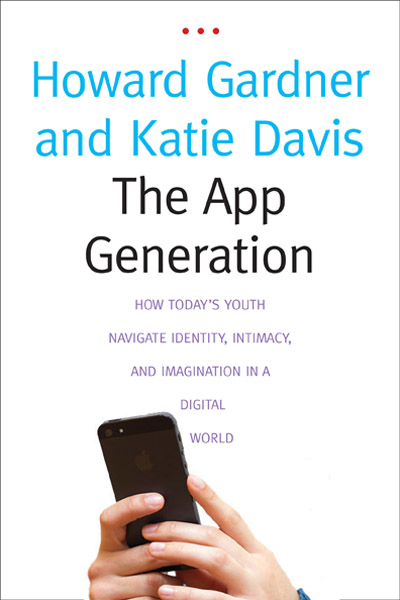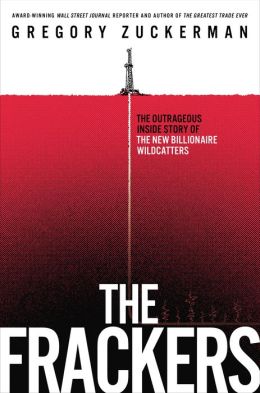-

The App Generation: How Today’s Youth Navigate Identity, Intimacy, and Imagination in a Digital World
by Howard Gardner and Katie Davis

The Nutshell:
Risk-averse. Dependent. Superficial. Narcissistic. All of these are adjectives employed by developmental psychologists Gardner and Davis to describe the Web 2.0 generation. They argue that today’s kids are dependent on apps—from maps that prevent them from getting lost to social media that keep them in constant contact with one another.
Literary Lovechild Of:
Sherry Turkle’s Life on the Screen: Identity in the Age of the Internet and Jean M. Twenge’s Generation Me: Why Today’s Young Americans Are More Confident, Assertive, Entitled—and More Miserable Than Ever Before.
You'll Find It On Your Bookshelf If:
You want to understand why your child blocked you from posting on her Facebook wall. It seems ungrateful, given how every day for six months you made sure to post a few links you thought she’d like.
Cocktail Party Fodder:
In ordinary conversations, people talk about themselves about 30 to 40 percent of the time. Around 80 percent of social media updates are self-focused.
For Optimal Benefit:
Read on your smartphone or tablet, so you can get back to your apps a little faster.
Snap Judgment:
The studies conducted by Gardner and Davis (such as one involving high school students’ creative writing and artwork over the past 20 years) and those they cite (like how often people use racist and sexist language online) are fascinating. Their conclusions, however, waffle.
-

Minecraft: The Unlikely Tale of Markus “Notch” Persson and the Game That Changed Everything
by Daniel Goldberg and Linus Larsson

The Nutshell:
When Minecraft—an “open world” video game that’s something like a cross between Tetris and SimCity—went viral in 2009, it shook up the gaming world. Swedish technology writers Goldberg and Larsson describe how a Swedish programmer created the game in his spare time and sold it independently. “Notch” changed the way games are imagined, developed, and purchased.
Literary Lovechild Of:
Jeff Ryan’s Super Mario: How Nintendo Conquered America and (believe it or not) Walter Isaacson’s Steve Jobs.
You'll Find It On Your Bookshelf If:
You think Minecraft is the best thing to come out of Sweden since The Girl With the Dragon Tattoo. In fact, you think Minecraft’s creator could kick Lisbeth Salander’s ass, dragon tattoo and all.
Cocktail Party Fodder:
In 2012, the number of Minecraft players was equal to triple the population of Sweden.
For Optimal Benefit:
If you’re taking a break from gaming, this book just might tide you over until you’re in front of a screen again. But, hell, why even take such a break?
Snap Judgment:
You may find this book as addictive as Minecraft. If you’ve never played, it’ll at least inspire you to check out the game. Otherwise, just go back to Minecraft.
-

The Frackers: The Outrageous Inside Story of the New Billionaire Wildcatters
by Gregory Zuckerman

The Nutshell:
Wall Street Journal writer Zuckerman narrates the stories of the men who have made fortunes in less than a decade by drilling through shale in Middle America.
Literary Lovechild Of:
H.W. Brand’s The Age of Gold: The California Gold Rush and the New American Dream and Daniel Yergin’s The Prize: The Epic Quest for Oil, Money, and Power.
You'll Find It On Your Bookshelf If:
Environmental activism interests you, but perhaps not as much as becoming one of the men who make fortunes in less than a decade by drilling through shale in Middle America.
Cocktail Party Fodder:
U.S. gas production has risen by 20 percent in five years. (And soon we’ll be exporting it, according to Zuckerman.)
For Optimal Benefit:
Read before you start buying land in North Dakota.
Snap Judgment:
Zuckerman describes the wildcatters as part-gamblers, part-salesmen, and part-geologists. In his snappy telling, they’re also part-Horatio Alger, part-Buffalo Bill. The environmental questions raised by fracking are mostly dealt with in the afterword—Zuckerman says they’re bigger than the oilmen want to admit but argues that they’re smaller than environmentalists make them out to be.



